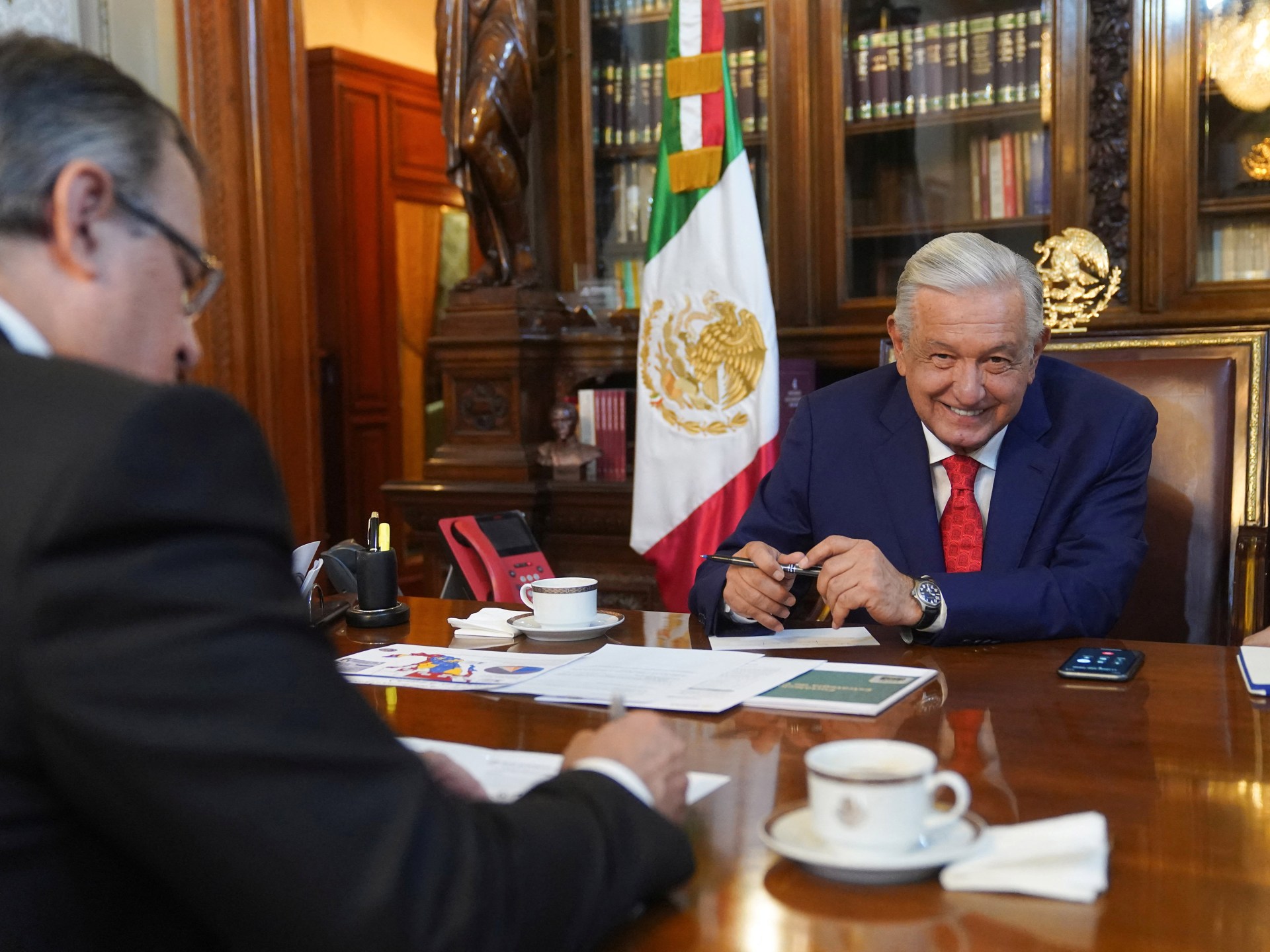President López Obrador’s administration promised to compensate the company for using the rail line.
The government of Mexican President Andrés Manuel López Obrador has deployed Marines in the south of the country to occupy a section of the railways operated by a private group.
Officials called the measure “temporary” and in the “public interest,” as the government works to modernize the rail network to the sea on the Isthmus of Tehuantepec, a narrow stretch of land between the Gulf of Mexico and the Pacific Ocean.
Called the Inter-Ocean Corridor, the project aims to help Mexico boost its economy and compete with the Panama Canal, a major conduit for trade in the region.
But Friday’s rail acquisition caught Grupo Mexico Transportes by surprise, according to a statement it issued in the aftermath.
“The sudden and unusual takeover of facilities by the armed forces is being analyzed by Grupo Mexico Transportes and its investors and advisors,” the company said. Its shares fell more than 4 percent on Friday afternoon.
The Mexican government promised to compensate Grupo Mexico Transportes for the confiscation, which includes about 120 kilometers (75 miles) of rail, between Aguas Medias and the coastal city of Coatzacoalcos.
The company said that trains are continuing to operate on the line “under the supervision of the armed forces.” The military takeover took place around 6 am local time (12:00 GMT).
This is not the first time that the López Obrador administration has been accused of appropriating transportation infrastructure for government use.
In March, US-based Vulcan Materials alleged that Mexican police and military personnel illegally made their way to the docks of the port it operated in Punta Venado, along the Caribbean coast.
Once there, the soldiers allegedly facilitated the unloading of cement, crushed stone, and other materials on behalf of Mexico’s CEMEX—materials destined for the government’s Mayan train project in the Yucatan Peninsula.
The incident sparked outrage in the United States, with Republican Senator Katie Brett of Alabama calling the move “illegal and unacceptable”. Meanwhile, the US State Department said it was “concerned about the fair treatment of our companies in Mexico”.
López Obrador championed the Maya Train project, a 1,500-kilometre (950 mi) railway designed to circle the Yucatan Peninsula, connecting several popular tourist spots.
But the project, estimated to cost $16 billion, has faced significant opposition, including from indigenous, environmental and archaeological groups concerned about how it will affect fragile ecosystems and historic sites in the region.
On Thursday, Mexico’s Supreme Court delivered a setback for Lopez Obrador when it ruled that the government had no right to rule the Mayan train and other infrastructure projects “national security” to facilitate construction.
The train project was briefly put on hold in 2022 after a court order for failure to file an environmental impact statement. López Obrador, whose term ends in September 2024, had been racing to complete the rail line before walking out of office.
In Thursday’s ruling, the Supreme Court — a body with which López Obrador has an adversarial relationship — said a “national security” designation would violate transparency laws about public works.
But López Obrador responded to the court’s decision later on Thursday by ordering the Federation’s Official Journal, where government rules and regulations are published, to reclassify the “national security” designation.
The order would cover projects such as the Mayan Train as well as a rail network to the sea isthmus of Tehuantepec and several airports, protecting it from normal permitting processes.

“Typical beer advocate. Future teen idol. Unapologetic tv practitioner. Music trailblazer.”







More Stories
JPMorgan expects the Fed to cut its benchmark interest rate by 100 basis points this year
NVDA Shares Drop After Earnings Beat Estimates
Shares of AI chip giant Nvidia fall despite record $30 billion in sales